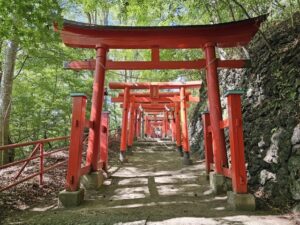In September 2024, the CEO of Hoshino Resorts made a comment that has sparked widespread discussion: “Yen appreciation is detrimental to the tourism industry.” This statement has raised concerns among industry professionals, economists, and the general public about how a stronger yen might impact Japan’s ability to attract foreign tourists.
While a strong yen could indeed reduce the number of international visitors due to increased costs for foreign tourists, some argue that Japan should focus on attracting tourists who value quality over price. The idea is that tourists visiting Japan for reasons other than affordability, such as cultural experiences or luxury services, could still drive growth in the tourism sector even during periods of yen strength.
This article explores both the potential negative effects of yen appreciation on tourism and the opportunity to target high-value, price-insensitive tourists.
How Yen Appreciation Negatively Affects Tourism
The main reason why yen appreciation is seen as a threat to the tourism industry is its effect on foreign tourists’ purchasing power. When the yen strengthens, it becomes more expensive for foreign tourists to exchange their currency into yen, making Japan a pricier destination. As a result, some tourists may opt for more affordable travel destinations.
Past examples show that yen appreciation has led to downturns in the tourism industry. For instance, after the 2011 earthquake, the yen’s strength further discouraged foreign tourists from visiting Japan. According to data from the Japan National Tourism Organization (JNTO), the number of international visitors to Japan dropped during the yen appreciation of 2011–2012, only to recover when the yen weakened.
This historical trend backs up Hoshino Resorts CEO’s claim that a stronger yen poses a challenge for Japan’s tourism sector, especially in attracting budget-conscious travelers from neighboring Asian countries. The correlation between a strong yen and a decline in tourist numbers suggests that price-sensitive markets may look elsewhere during periods of yen appreciation.
The Case for Targeting Tourists Beyond Price Sensitivity
However, it’s important to consider that not all tourists are driven solely by cost. There is a growing market of international travelers who prioritize unique cultural experiences and high-quality services over affordability. Japan’s rich culture, scenic landscapes, and premium hospitality offerings provide a significant draw for tourists who are less concerned about price.
For example, affluent tourists from Europe, the U.S., and Southeast Asia are known for seeking out luxury accommodations and exclusive cultural experiences in Japan. Kyoto’s historic temples, Hokkaido’s hot spring resorts, and high-end accommodations like those offered by Hoshino Resorts are prime examples of what Japan has to offer these discerning travelers.
The global luxury travel market is on the rise, and Japan is well-positioned to tap into this trend. A 2019 report indicated that high-income travelers, particularly from Europe and Southeast Asia, continue to choose Japan for its unique cultural experiences, even when the yen is strong. These tourists are not driven by price alone; they seek out the value of the experience, which positions Japan’s tourism industry to succeed even in times of yen appreciation.
Strategic Shifts in Tourism: Emphasizing High-Value Services
One of the most effective strategies for the tourism industry in times of yen appreciation is shifting focus from low-cost travel packages to high-value services. Businesses that offer premium experiences, like Hoshino Resorts, are well-positioned to thrive even when the yen strengthens.
Hoshino Resorts, for example, is known for offering luxury stays that are more than just accommodations. Their properties blend harmoniously with Japan’s natural beauty and provide guests with immersive cultural experiences. These premium services attract tourists who value the experience over the cost, making them less susceptible to fluctuations in the exchange rate.
In addition to luxury accommodations, other segments such as cultural tourism and eco-tourism are gaining popularity. These types of travel focus on providing once-in-a-lifetime experiences that cannot be replicated elsewhere. As a result, even if the total number of tourists decreases due to yen appreciation, focusing on delivering high-value experiences can help the tourism industry maintain profitability.
Past Yen Appreciation and Its Impact on Tourism
Looking at previous periods of yen strength offers valuable insights into how the tourism industry can respond. In the late 1990s and early 2000s, Japan experienced significant yen appreciation, leading to a drop in international visitors. This downturn was particularly noticeable among tourists from neighboring Asian countries, who were more price-sensitive.
However, as the yen weakened in subsequent years, Japan’s tourism industry rebounded. This demonstrates that while yen appreciation can have a short-term negative effect, the industry is capable of recovering and even thriving when strategies are adapted to target higher-value tourists.
Conclusion: A Balanced Approach for Japan’s Tourism Future
In the context of yen appreciation, Japan’s tourism industry must look beyond price-driven competition and instead focus on offering high-quality services and experiences that appeal to affluent, value-conscious travelers. Businesses like Hoshino Resorts are well-suited to weather the challenges posed by a strong yen by continuing to attract high-spending tourists who appreciate the unique aspects of Japan.
By emphasizing Japan’s rich culture, natural beauty, and world-class hospitality, the tourism sector can continue to grow sustainably even in a strong yen environment. The future of Japan’s tourism lies in targeting tourists who value the country’s distinctive attractions and are willing to pay for premium experiences, rather than solely focusing on affordability.









Comments